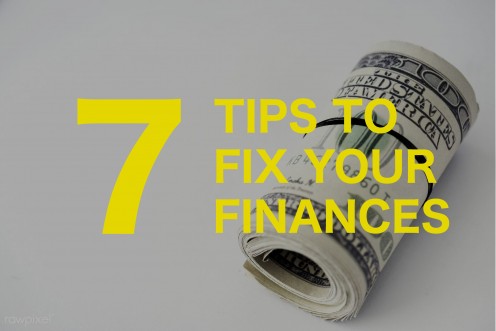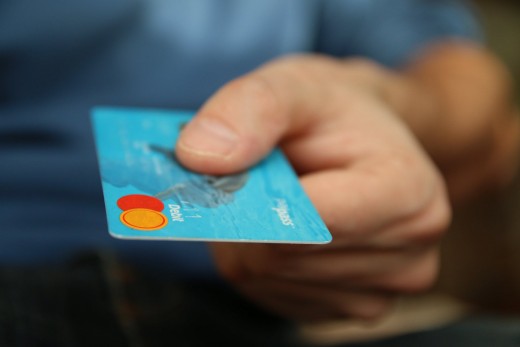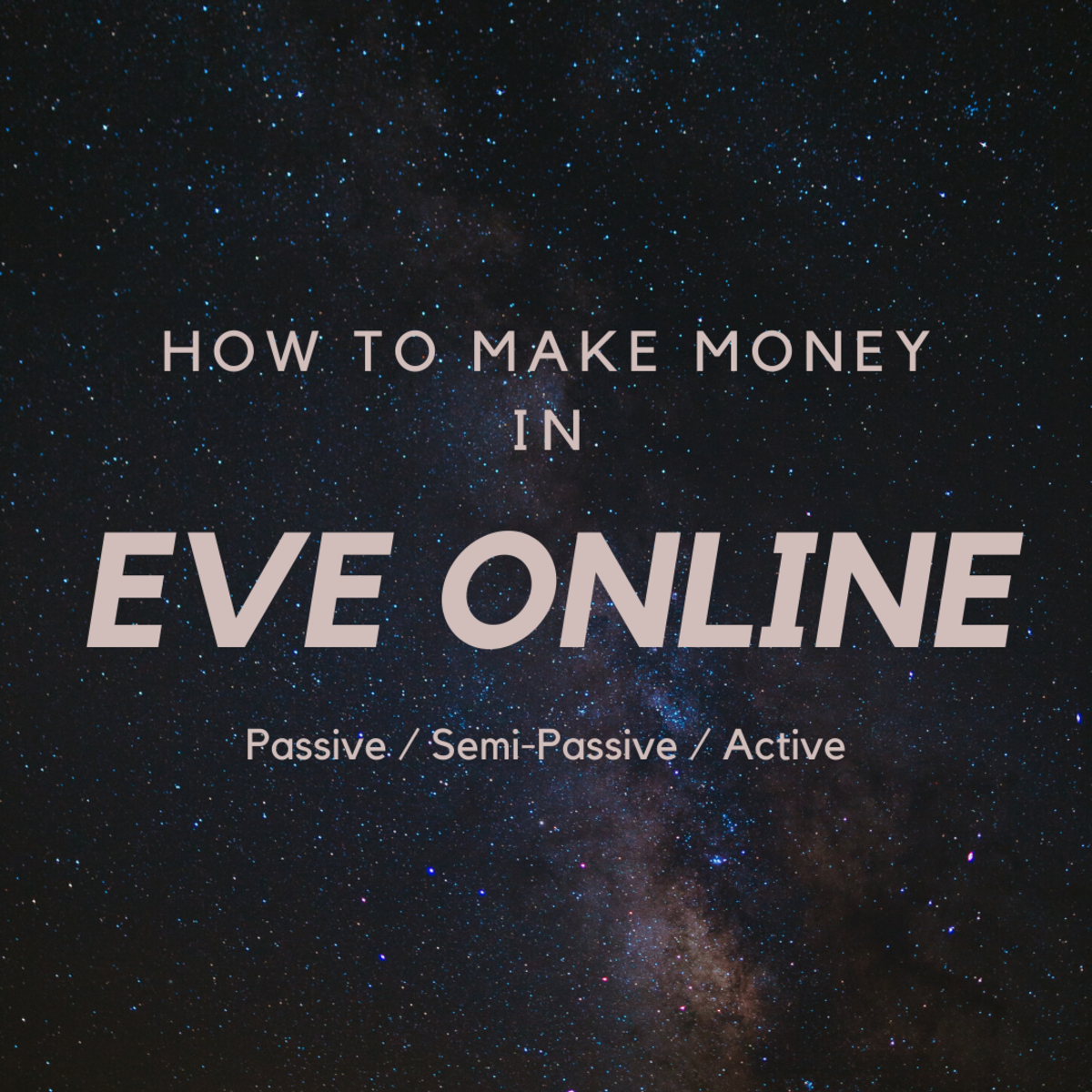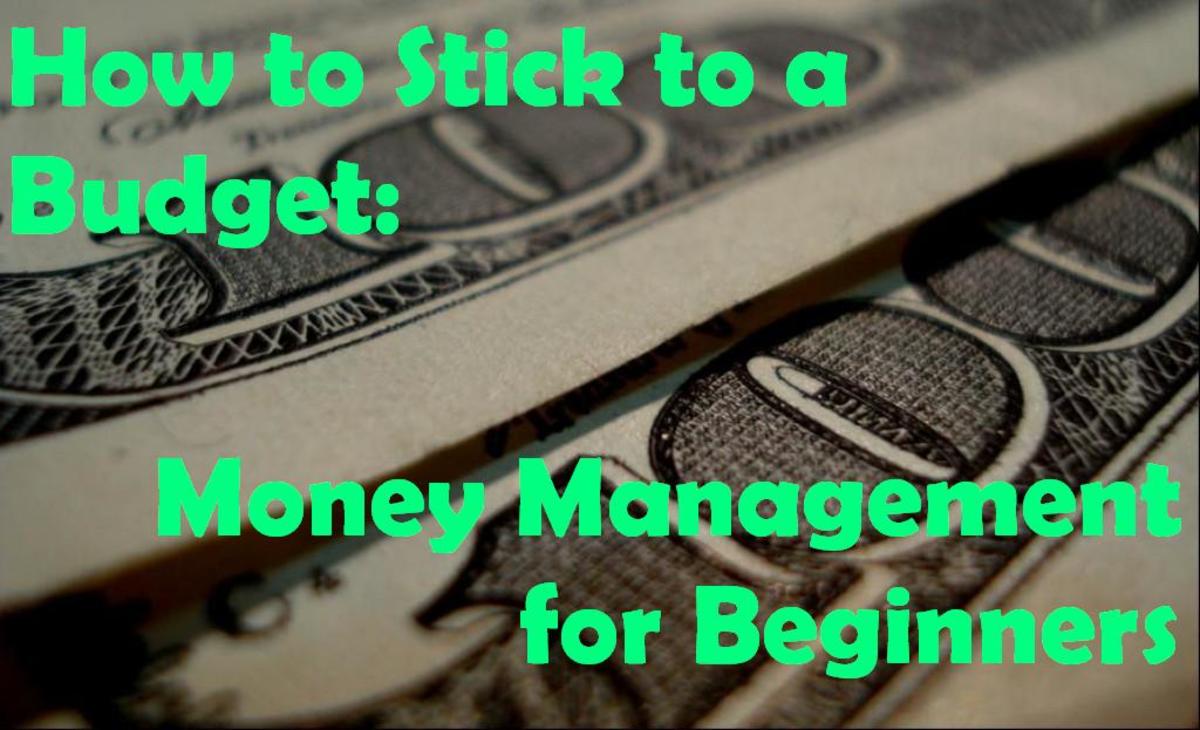7 Tips to Fix Your Finances

7 Tips to Fix Your Finances
No matter what it is in this life, there is always a room for improvement, and that is especially true when it comes to the realm of your income. Though the ultimate goal of these tips to fix your finances should be financial freedom, just making one of these a habit each month will put you into a much better financial situation in the years to come.
1. Get Rid of Debt
First and foremost, eliminating debt is going to be the biggest boon to your finances. Whether it be a home mortgage, student loans, or even credit card debt, all of these things are eating away at your income every month. There are several paths one can take when planning how to get rid of debt, but let's take a look at some of the factors that are involved first.
Interest
Interest is the amount that your lender is charging you for keeping your hands on their money. It's not a hard concept, if you owe someone 100 dollars, at 10% interest, then they expect to make 10 dollars back off the money over the course of a year. If all you do is pay the interest payments, then you would still owe them 100 dollars.
The big issue with this is that it compounds over years, so paying off that same hundred dollars over the course of 10 years would cost you more than double what you initially borrowed. Also keep in mind if you are borrowing money, then there is a good chance you are paying a higher interest rate than what you would be able to get if you put the money to work for you.
2. Stop Borrowing Money
This should be at the top of your financial to do list. Constantly borrowing money to pay for things is a sure way to keep yourself in debt for the rest of your life. And while that has become culturally acceptable, that doesn't mean that's any kind of a life that you want to live. So really take a step back and look at things before you buy them, and ask yourself this “Can I wait for this?” It's a simple question, but if you can take the time to wait before you buy something, then you'll save a small fortune in the long run.

3. Cut Up Your Credit Cards
Credit cards can easily have a 20% interest rate, which is insane. And they are all too easy to use on a daily basis.
The only thing I recommend using these for is travel. The points you get for flights and hotel rooms can far outweigh the month's worth of interest. A word of warning though, save the money for your trips in advance, then pay off the balance at the end of the month. Don't spread this out.
4. Save Up an Emergency Fund
This is the next step to getting your finances stable. An emergency fund is just what it sounds like, it's there for when you have an emergency. This would cover things like unexpected repairs, but the value of it is incredible. When you have all the money you need to fix problems before they come, you no longer have to borrow money to take care of what would otherwise be trivial things. Plus it has the added bonus that getting fired doesn't mean that you are completely out of money.
Your emergency fund should be in the range of 1,000 dollars and up. Ideally it should be large enough to cover six month's expenses, and while that is a lofty goal, this can be difficult, and it may be better to focus on eliminating your debts before you get to this point.

Two Plans to Get Rid of Debt
There are two great strategies you can use for planning how to get rid of your debt, and both of them have their merits.
The Debt Snowball
The debt snowball is a simple idea. You take whatever your smallest loan is, and pay that off as fast as possible. When that one is done, you take the money that you would be paying on the first loan and apply it to the next smallest one. The idea is that by keeping your spending habits stable, and using the extra to burn your debt, you eventually pay it all off in the shortest period of time, thus saving money by not having to pay interest.
Here's a great description of the debt snowball
Highest Interest
The second idea is to pay off whatever loan has the highest interest first. Ideally this insures that you are paying down the biggest detriment to your finances. Then when that one is gone, take the excess you were paying to get rid of that loan and pay it on the next one.
This is a pretty good method, but it doesn't take all factors into account.
Both of these methods are tried and true however, so pick one that feel best fits your current financial situation.
Which debt reduction technique is more appealing to you?
5. Decrease Your Spending
Now if you really want to kick this thing into overdrive, then you should take a look at your monthly expenses and see where you can pinch some extra pennies. This doesn't have to take a lot of effort, though it can be grating when you are first starting out. Changing your habits almost always comes with an adjustment period, and when that that adjustment is using less money, it can be one of the hardest things in your life.
Save Money Daily
My suggestion is to take it slow at first. Look for little things you can do every day to save money. Whether that's making coffee at home instead of going to a coffee shop, or walking to the store instead of taking a car. Once you redevelop your habits you can save hundreds a month by doing this.
Save Money Every Month
Then there are the monthly bills. You would be surprised by what you can save every month with just a phone call. Did you know it takes businesses on average 10 times as much money to get a new customer, than to retain an old one? Because of this, service providers are almost always willing to cut you a discount. Just be prepared to negotiate, because this can take a little effort.
Increase Income
The next thing on the list of tips to fix your finances, is to increase your income. Obviously the more money you make, the easier things will be. So let's focus on that.
6. Get a Better Job
One of the biggest hurdles when it comes to getting ahead is people's unwillingness to look for another job. Don't get me wrong, I've had more than my fair share of jobs just fall into my lap, but that doesn't mean you should be counting on that. You should be looking. So update that resume, break out some business cards, and start getting your name out there, and if you follow these tips, you'll be sure to land a great job in no time.
7. Increase Passive Income
Passive income or what is often defined as an asset, are things which put money into your pocket every month with little to no work on your part. With enough passive income a person can quit their job and throw away their resume, because they'll never need another employer again. Passive income usually comes in two types, the first requires labor upfront to create, and the second is takes and investment of money.
Create Something
It may not seem like it at first, but there are tons and tons of ways you can turn your efforts into streams of passive income without having to put any money down. Take this very website for example, Hubpages allows you to write articles in exchange for a portions of the advertising revenue generated by the page. It costs you nothing to get started, and can pay you for years.
You could also try your hand at writing a book for Amazon. It's a lot easier than you might think.
If you haven't found something you are interested in doing, then keep looking around, there are new opportunities to make passive income with no money popping up all the time.
Investing
The last word in fixing your finances, is investing. This is where you make your money work for you. And the good news is there are more places to put money than you would believe. Though do be careful, the higher the risk when investing, the more likely you are to lose everything. On the other hand everything has risk, so don't let that stop you from making a better future for yourself.
With all those tips to fix your finances in mind, remember the most important thing is to ease yourself into it, and do what works. Overloading yourself is a surefire way to fail. Few people can make a drastic switch over night and stick to it. Instead I recommend focusing on one of these tips a week. Soon enough, living like this will be second nature, and you'll be well on your way to financial freedom.








